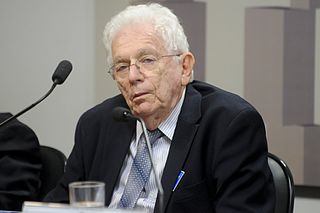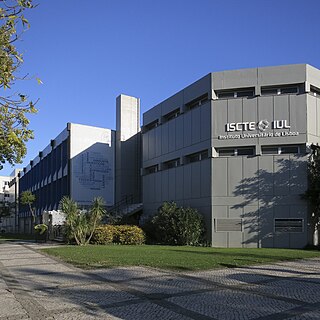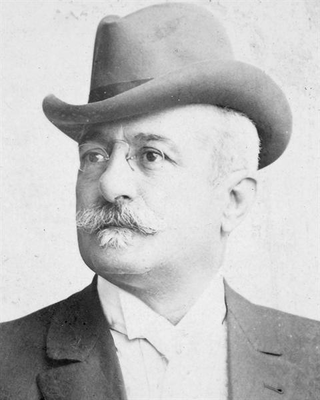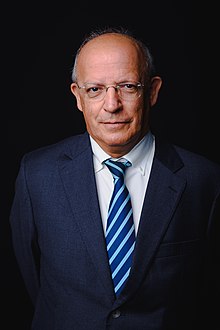
The Brazilian Army is the branch of the Brazilian Armed Forces responsible,externally,for defending the country in eminently terrestrial operations and,internally,for guaranteeing law,order and the constitutional branches,subordinating itself,in the Federal Government's structure,to the Ministry of Defense,alongside the Brazilian Navy and Air Force. The Military Police and Military Firefighters Corps are legally designated as reserve and auxiliary forces to the army. Its operational arm is called Land Force. It is the largest army in South America and the largest branch of the Armed Forces of Brazil.

JoséÁlvaro Machado Pacheco Pereira,GCL is a Portuguese political commentator,historian and politician. He is a member of the center-right Social Democratic Party.

Simon Schwartzman is a Brazilian social scientist. He has published extensively,with many books,book chapters and academic articles in the areas of comparative politics,sociology of science,social policy,and education,with emphasis on Brazil and Latin America. He was the President of the Brazilian Institute for Geography and Statistics (IBGE) and is a retired professor from the Federal University of Minas Gerais. He is member of the Brazilian Academy of Sciences,holder of the Grand Cross of the Brazilian Order of Scientific Merit (1996). He is currently associate researcher at the Institute for Studies in Economic Policy Instituto de Estudos de Política Econômica / Casa das Garças - Rio de Janeiro.
Tomaz Emídio Leopoldo de Carvalho Cavalcanti de Albuquerque Schiappa Pectra Sousa Ribas was a professor,writer,ethnologist and critic of theatre and dance.

Albuquerque Mendes is a Portuguese artist. He works in the fields of painting,performance art and installation.

Adriano JoséAlves Moreira,ComC GCC GOIH GCSE was a Portuguese lawyer,professor and a leading political figure in Portugal throughout the second half of the 20th century.

ISCTE –IUL is a Portuguese public tertiary education institution. It is located in the city centre of Lisbon,in Cidade Universitária,adjoining the Institute of Social Sciences (ICS) and Institute of Geography and Spatial Planning (IGOT) of the University of Lisbon. ISCTE was founded in 1972,starting with three degrees and 296 students. Formerly called Instituto Superior de Ciências do Trabalho e da Empresa,its full name was dropped in 2009 when it became a university institute of foundational nature.

Boaventura de Sousa Santos is a sociologist,Professor emeritus at the Department of Sociology of the School of Economics of the University of Coimbra (FEUC),Distinguished Legal Scholar at the University of Wisconsin-Madison Law School,and Director Emeritus of the Centre for Social Studies at the University of Coimbra. An outspoken sympathizer and avowed supporter of the Bloco de Esquerda party,he is regarded as one of the most prominent Portuguese living left-wing intellectuals.

Benjamin Abdala Júnior is a Brazilian writer,scholar,and literary critic. His first book,A Escrita Neo-Realista,was published in 1981. He published the book Antologia da Poesia Brasileira - Realismo/Parnasianismo in 1985. He has written over 40 published books and hundreds of chapters in book collection,articles in newspapers and literary magazines .He has worked with the main Brazilian Scientific Agencies evaluating scholarships and grants requested by researchers from the main Brazilian universities. Benjamin has also lived in Portugal and France,where he expanded his research and gave lectures on Comparative,Portuguese and African Literatures. He has been invited to the main universities in Africa,China,United States,Canada,France,England,Portugal,Austria,Tchecoslovaquia,Russia and Chile,giving lectures on African Literatures of Portuguese Speaking Countries,Comparative Literature,Neo-realism in Portugal and Brazil,among other subjects. Grandson of Lebanese immigrants,he received a Merit Medal celebrating 130 years of Middle Eastern Immigration to South America from BibliASPA - Biblioteca e Centro de Pesquisa América do Sul - Países Árabes. He has 3 children and 3 grandchildren,and lives in São Paulo. He is retired from University of São Paulo after 35 years of contribution as professor and administrator,but he is still actively involved in the Faculdade de Filosofia,Letras and Ciencias Humanas as a researcher.
Mário Vieira de Carvalho is a Portuguese musicologist and author. His main research fields are sociology of music,philosophy and aesthetics of music,opera,contemporary music,music and literature,18th-century studies,Wagner,Luigi Nono and Portuguese music from 18th to 21st centuries.

Beatriz Amélia Alves de Sousa Oliveira Basto da Silva was born in Anadia,Portugal in 1944 and majored in history at the University of Coimbra with the thesis of Historiografia - o Conceito de História em António Caetano do Amaral.
Irene do Céu Vieira Lisboa was a Portuguese novelist,short story writer,poet,essayist and educational writer. Especially for her fictional work,she has achieved a special place in modern Portuguese literature.

Miguel Augusto Bombarda was a Portuguese physician,psychiatrist,and politician. He is perhaps most widely remembered as one of the major conspirators of the 5 October 1910 revolution,although he was shot and killed the day before the coup took place by one of his patients,Aparício Rebelo dos Santos.
The 28 de Novembro Public Secondary School is a Timorese educational institution based in Becora,in Dili,the country's capital. It is one of the largest educational institutions in East Timor.

Moisés de Lemos Martins is a full professor at the Department of Communication Sciences,University of Minho. He is the Director of CECS –the Communication and Society Research Centre,which he founded in 2001,and of the Virtual Museum of Lusophony,which he set up in 2017. He is also the director of the scientific journals Comunicação e Sociedade,Revista Lusófona de Estudos Culturais/Lusophone Journal of Cultural Studies,and the Vista. He launched the former in 1999,the second in 2013,and the latter in 2020. He is a sociologist and communication theorist,as well as an essayist and regular contributor to the media.
Teresa Joaquim is a social anthropologist who is the coordinator of the first master's program in women's studies in Portugal. Women's Studies –Gender,Citizenship and Development was launched at the Universidade Aberta in 1995 and Joaquim pressed for it to be expanded to include a PhD platform in 2002. She served as a member of the National Ethics Council for Life Sciences between 1996 and 2001 and as part of the Helsinki Group on Women in Science. She has participated in numerous policy development projects evaluating inclusion and equal opportunity for women for the government of Portugal,as well as the European Union.
Augusto Brázio,is a Portuguese photographer with a long consolidated career in photography since the 90's,has had more than 10 books published.
Susana de Noronha is a Portuguese anthropologist,PhD in sociology,and researcher at the Center for Social Studies (CES) at the University of Coimbra. In addition to her research,she works as an invited assistant professor at the Department of Sociology of the Institute of Social Sciences (ICS) at the University of Minho.

Edison de Souza Carneiro was a Brazilian writer,historian and ethnologist who specialized in Afro-Brazilian culture. He was one of the most well-known Brazilian ethnologists during his time with his studies on Afro-Brazilian culture and history,which had largely been ignored by Brazilian academic literature up to that point. He was also an activist with the Brazilian Communist Party (PCB),starting in the 1930s.













